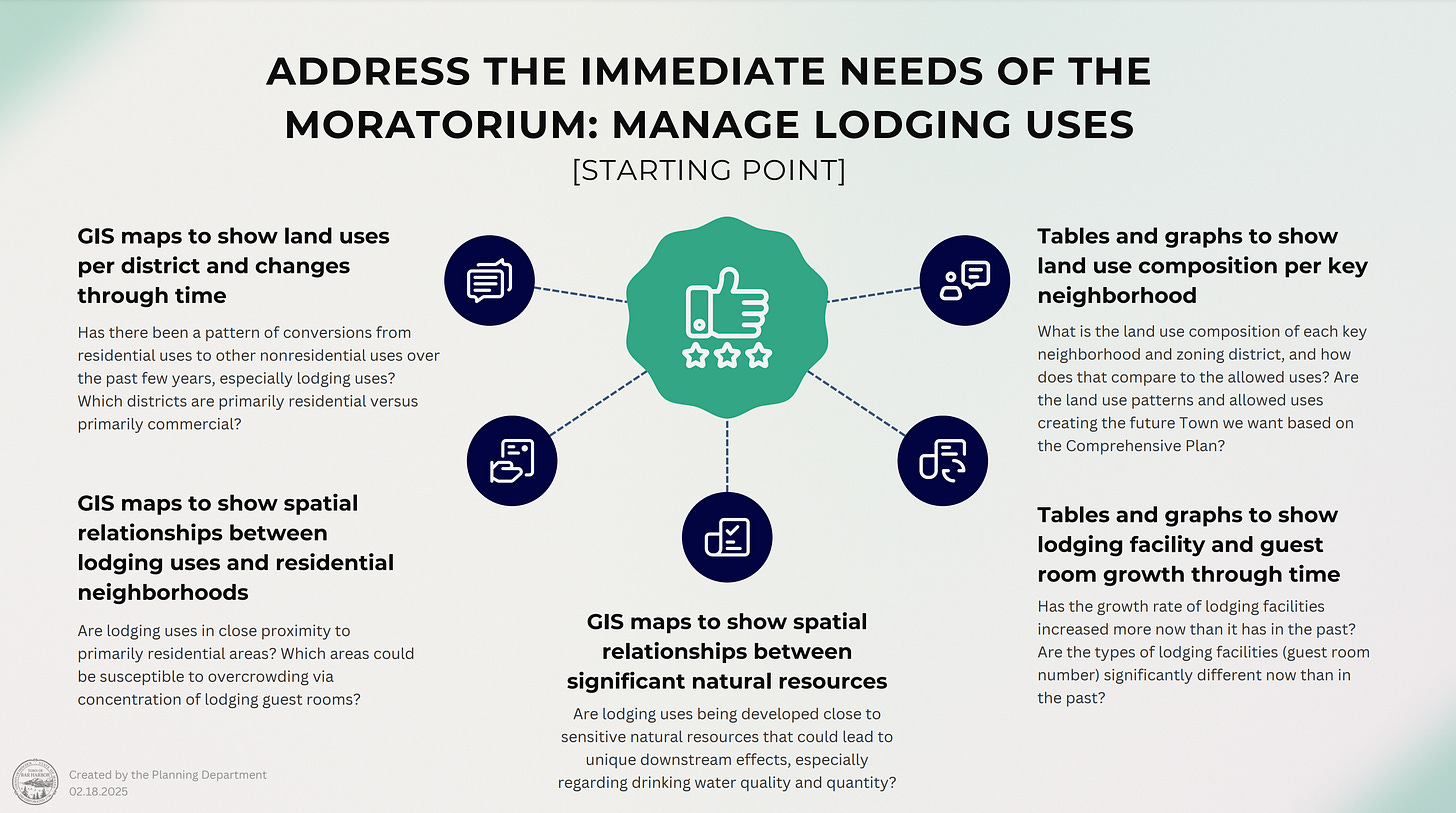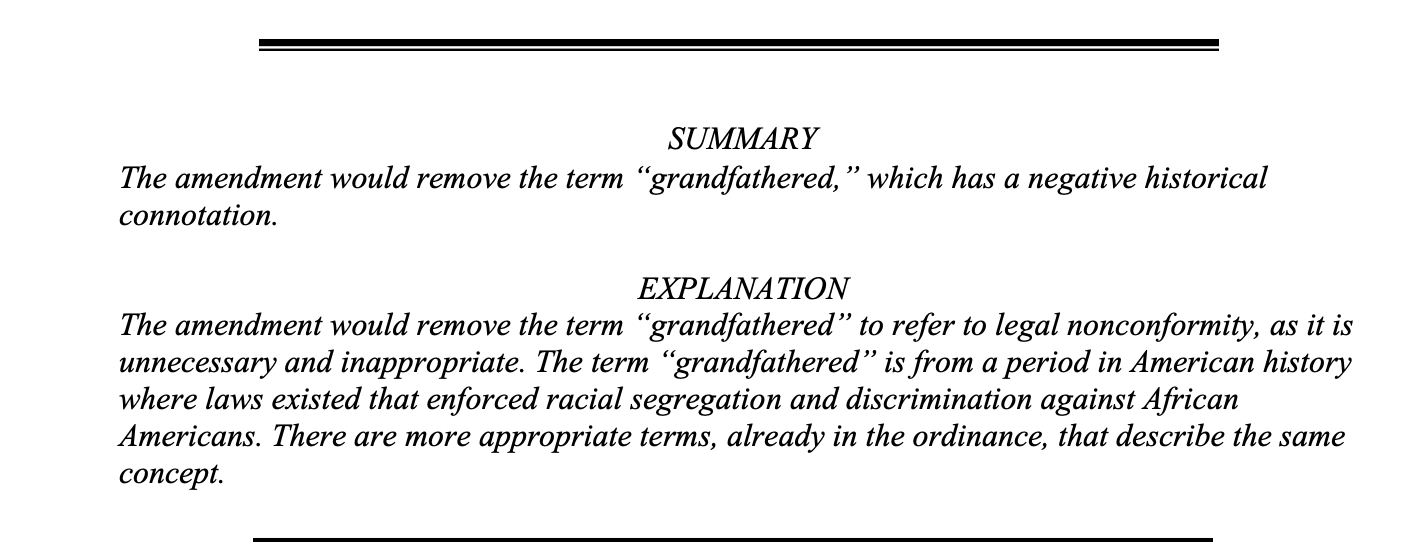BAR HARBOR—The upcoming week will prove a meeting-heavy one as elected and appointed members of Bar Harbor boards, committees, and the council meet to steer the future of the town.
And while that future is steered by the comprehensive plan and other planning documents, a lot of what happens is determined by the town budget and will be impacted by work surrounding the town’s moratorium on lodging.
“It’s tedious. It’s hard. It’s difficult at times,” Town Council Chair Valerie Peacock said of the budget process in 2024, but she added that it shows what the town values in its community and what it supports and prioritizes.
Both Bar Harbor’s town council and warrant committee workshopped the town’s potential budget this week prior to heading into a joint meeting February 25 where the warrant committee will present its recommendations.
This week planning board will also begin to workshop in relation to the 180-day moratorium on transient accommodations, which works as a pause on all lodging development in the town.
ONGOING WORK RELATED TO THE TRANSIENT ACCOMMODATIONS MORATORIUM
During the town council meeting last week, Bar Harbor’s Housing and Community Planner Cali Martinez and Planning Board Chair Millard Dority gave a brief, high-level update on the transient accommodations (lodging) moratorium enacted by the council earlier this winter.
Martinez said that the planning staff and board are looking to see if there have been conversions of uses from residential to commercial and which areas are primarily residential and how to outline that. They are also looking to see if there could be hubs of lodging uses that might be contributing to overcrowding.
They are building off work previously done by Angie Chamberlain about current lodging uses and facilities.
They’re going to have a workshop with the planning board and follow-up workshops as the board deems necessary. The town has just 180 days to determine to tweak or not tweak the issues surrounding lodging.
“We are very motivated to work as fast as we can,” Martinez said.
Dority said the planning board members were very enthusiastic about the workshops.
“We here you loud and clear about density and building heights,” Dority said. He also stressed that there are multiple facets to every question and potential changes that the town faces.
“This is exciting to see,” Town Council Chair Valerie Peacock said, and she added that the data the planning department is compiling would be particularly helpful.
Councilor Joe Minutolo said he wants to know about the maximum capacity that each lodging can hold rather than just whether or not there are more or less rooms in town.
The planning board will begin these discussions in a workshop that’s open to the public, February 27. That workshop is currently scheduled at 10 a.m.
MOORING AMENDMENT
After months of work, the town’s rules on moorings have changed to give the town’s harbormaster, Chris Wharff, the ability to reassign perpetually vacant and unused moorings.
The amendment, Wharff said, puts the town in line with others in Maine. The harbor committee had previously recommended the changes as well.
“I’m hoping this is the first step to opening up some more space in our harbor,” Wharff told the councilors. Another step would be reorganizing where moorings are located in the town’s inner harbor.
Wharff said there are some moorings that have been sunk for awhile. There are at least 4-5 which don’t get used. There are approximately 110 moorings in the inner harbor.
Peacock said they were talking about this issue when she was assistant harbormaster 25 years ago.
“Some people have been on that waiting list for a long time,” she said.
“I understand that most people’s mooring in the inner harbor is like their first-born child,” said Wharff. “It’s a very delicate issue and it will be handled with care and there will be a lot of communication before somebody loses a mooring.”
The councilors unanimously approved the changes.
Those changes would be within Chapter 153 of the town’s land use ordinance, entitled “Port and Harbor.”
Wharff had updated the potential changes according to feedback that occurred in the first harbor committee meeting.
The changes concern what the town can do when moorings in the inner harbor are “substantially unused” for more than one season. Moorings are assigned indefinitely to users who pay an annual fee. Many moorings are registered but unused year after year. There is a waiting list for the moorings and only a limited number exist.
FINANCIAL REPORT
During the council meeting, Finance Director Sarah Gilbert gave the January 2025 financial report, a summary of seven months of revenue and expenses.
“There’s a 9% increase in vehicle excise tax, 31% in building permits,” Gilbert said. Parking revenue that’s coming in is winter collection of citation. They’d budgeted $125k, and are just under $170k.
“Our legal is trending higher,” Gilbert said and overtime from winter storms will appear in the February report.
The second installment of property taxes are due at the end of March.
Discussions on budget with warrant committee have been productive, Smith said.
SUSTAINABLE TOURISM MANAGEMENT
Applications to serve on the town’s new sustainable tourism management task force are available at the town office and online. There is currently no deadline for applications to be turned in.
The town council approved the task force during its January 21 meeting.
“The task force shall consist of no more than 13 year-round Bar Harbor residents appointed by the town council. The membership should include a broad representation of the diverse interests that make up Bar Harbor. For example, it could include residents and workers in the following categories: retirees, hoteliers, restaurateurs, retailers, attraction and tour operators, Chamber of Commerce, bankers, realtors, professional and research sector, construction, farmers, fishers, Island Explorer, climate emergency task force, comprehensive planning committee, and planning board, as well as other boards and committees. An inclusive and balanced representation of diverse interests will ensure that a wide range of viewpoints, perspectives, and background are considered and included in the decision-making process and that all voices are heard,” it reads.
The appointments committee meets February 25 after the town council meeting and is currently scheduled to start at 8:30 p.m.
PUBLIC HEARINGS SCHEDULED
The council scheduled March 18 public hearings on the following land use ordinance amendments:
Offensive language.
Salisbury Cove Corridor front setback requirements.
Timeframes and phasing of projects.
Clarifying the definitions of Multifamily-1 and Multifamily-2.
Short-term rental language updating.
Fire suppression.
All the amendments must go before the voters, who have final say if they approved. This occurs June 10.
COUNCILOR COMMENTS
Councilor Earl Brechlin congratulated the kids at MDI High School for their sports and robotics team successes.
Vice Chair Maya Caines encouraged people to apply for task force and committee positions.
Peacock applauded the town staff’s work on multiple project.
The Bar Harbor Story is generously sponsored by Acadia Brochures of Maine.
LINKS TO LEARN MORE
Draft revised Cruise Ship budget section of proposed FY26 General Fund Budget binder. Also posted on the Town Budget Documents page, under Budget Review Process, Other information/documents.
Presentation by Sevee & Maher Engineers on Transfer Station Operations Evaluation and Sustainable Opportunities.
Data collection overview and roadmap of work related to the Moratorium on Transient Accommodations. Also posted on the Planning page.
If you’d like to donate to help support us, you can, but no pressure! Just click here (about how you can give) or here (a direct link), which is the same as the button below.
If you’d like to sponsor the Bar Harbor Story, you can! Learn more here.
Follow us on Facebook


















Town council is going to spend so much taxpayer money creating clip art collages they're going to have to convert their meeting chambers to a graphic arts museum and charge admission.
-Stephen Coston, art enthusiast 🎨